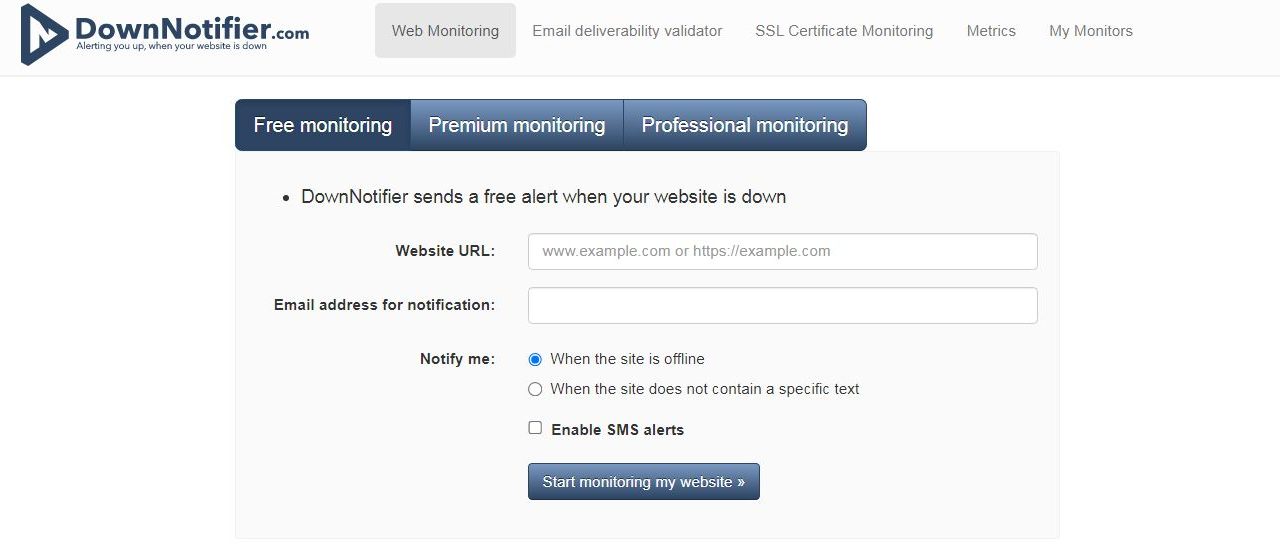Web monitoring with DownNotifier is an essential practice for any business or website owner, as it allows for the timely detection of issues that may affect the performance and accessibility of their online presence. One critical aspect of web monitoring is the analysis of HTTP status codes.
The Importance of Real-Time Website Monitoring with DownNotifier
In general, any HTTP status code above 399 (or fewer than 200) indicates a problem with the website. For instance, a 500 error or a 404 error signals that the webpage is down or cannot be found, respectively. In such cases, a down notification is promptly sent to the concerned parties to ensure that the issue is addressed and resolved promptly.
A Deep Dive into DownNotifier’s Features
Another important aspect of web monitoring is SSL certificate monitoring. This type of monitoring focuses on various aspects of an SSL certificate. It notifies the website owner when the certificate is close to expiration, ensuring that there is sufficient time for renewal. Additionally, SSL certificate monitoring identifies cases where the certificate is not functioning correctly or if the website’s configuration is insecure. This is particularly crucial in determining compatibility with older browsers.
The Essential Role of DownNotifier
Notifications regarding web monitoring and SSL certificate issues are primarily sent via email. Moreover, if there are multiple contacts associated with the website, all of them will receive a notification, ensuring that the relevant parties are informed about the status of their online presence.
It is worth noting that inadequate installations, such as only having the server certificate without the intermediate certificate, can lead to accessibility issues, particularly in older browsers. To address this, some certificate providers offer certificate bundles that include the intermediate certificate. Therefore, website owners should refer to their certificate provider’s installation instructions for proper configuration.
Harnessing the Full Potential of Email Deliverability Validator
Furthermore, email deliverability validator plays a crucial role in ensuring that emails sent from your domain reach the intended recipients’ inboxes. The validator checks the existence, correctness, and functionality of your domain’s SPF, DMARC, and DKIM settings, thus safeguarding an unhindered path to the recipients’ inboxes.
Final Thoughts
In conclusion, web monitoring, SSL certificate monitoring, and email deliverability validation are indispensable practices for ensuring the smooth functioning of a website and maintaining effective communication with users. By promptly addressing issues and ensuring the correct configuration, website owners can provide a reliable and secure online experience for their visitors.






















